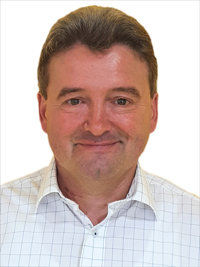Centenary Seminar: From Microreactors to Flow Chemistry to Sustainability
24 January 2024, 3:00 pm–5:00 pm

Join our upcoming Centenary Seminar: From Microreactors to Flow Chemistry to Sustainability: a 1/3-Centenary Path to Industry and Academic Community, presented by Prof Volker Hessel, The University of Adelaide, Australia.
This event is free.
Event Information
Open to
- All | UCL staff | UCL students | UCL alumni
Availability
- Yes
Cost
- Free
Organiser
-
Melania Torok, Executive Assistant – UCL Chemical Engineering
Location
-
Sir Ambrose Fleming Lecture Theatre G06Roberts BuildingUniversity College London, Torrington PlaceLondonWC1E 7JEUnited Kingdom
Abstract
Technology disruption can be a solution to a major societal or environmental challenge, to transform industries and redefine circularity. Covid has made us aware how critically it can be if global supply chains are interrupted, and we are coming back to resilient, self-sufficient and local manufacturing. The presentation will answer how flow chemistry (and plasma) processing can change chemical processing.
Microreactors have notably intensified mass and heat transfer and allowed safe operation in formerly explosive regimes. This was not enough to break through to chemical industry. Their expansion in process capability towards Novel Process Windows (NPW) was instrumental to widen their use in chemistry to what is known today as flow chemistry [1]. NPW utilises unusual, typically harsh process conditions to boost productivity of microreactors, and as a consequence, microreactors and flow chemistry have been used on industrial scale.
Recently, our group started space experimentation, as space is the ultimate disruptive barrier and modern playground for out-of-box thinking. Space manufacturing and resource utilization is the key to human space exploration and a revisit of the circular economy on Earth. Flow chemistry has been used for asteroid mineral processing and mooncrust phosphate/potassium leaching, an on-satellite self-priming chip for space chemistry, and the manufacture of nanoemulsions to form astronaut designer beverages and space medicines; with our first Australian-led ISS-NASA experiment motivating the latter.
The presentation will then overview (i) what sustainability assessments can deliver to guide flow chemistry towards industrial use, (ii) which types of sustainability assessment are at hand, and (iii) exemplify the potential of sustainability assessments at key examples. This includes green solvents, distributed manufacturing for on-demand customer supply, novel process windows, the 2010-Nobel Prize in Chemistry, and cost-internalization for a new chemical economy. We translated the principles of Environmental, Social and Governance (ESG), guiding investments for today’s companies, to evaluate a potential business of frontier technologies, which yet does not exist, looking forward 5-10 years.
Conclusion is that technology disruptions, while allowing breakthroughs in industrial challenges, also give new fundamental paradigms to the academic community.
Registration
To register, email Melania Torok, Executive Assistant at chemeng.ea@ucl.ac.uk
About the Speaker
Prof Volker Hessel
Professor in Sustainable Chemical Engineering at School of Chemical Engineering, Faculty of Sciences, Engineering and Technology, The University of Adelaide, Australia

He is author of 627 peer-reviewed publications (h-index: 87; ca. 34,000 citations). He received the AIChE Excellence in Process Development Research Award, IUPAC ThalesNano Prize in Flow Chemistry. He is program lead in the ARC Centre of Excellence Plants for Space (P4S), and is Research Director of the Andy Thomas Centre for Space Resources. He received several EU’s research excellence grants (ERC Advanced/Proof of Concept/Synergy, FET OPEN). He was authority in a 35-teamed Parliament Enquete Commission "Future Chemical Industry”.
More about Prof Volker Hessel Close
Close

